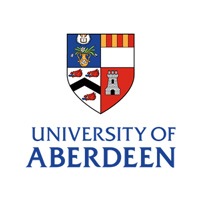fees waived
Chemical Engineering, BEng (Hons)
University of Aberdeen, United Kingdom
Subject ranking
UK / CUG 2024 11th
UK / Guardian 2025 12th
UK / Times 2025 15th
Costs
food & rentS$17.1K / year
Entry requirements
Scholarships
Limited quantity
Information
Code
Intakes
Website (External)
Programmes
Information
Duration
2029
Chemical engineering focuses on creating sustainable manufacturing processes for everyday products while tackling global issues like climate change, energy, and human health. Chemical engineers design efficient systems to convert raw materials into items such as chemicals, fuels, foods, and pharmaceuticals on an industrial scale, ensuring safety, sustainability, and cost-effectiveness. They also drive societal advancements, including affordable drug production and solutions for pollution and global warming.At Aberdeen, students gain a broad understanding of chemical and process engineering through an interdisciplinary curriculum, studying various engineering disciplines before specialising in the third year. This approach fosters versatile skills for collaboration and innovation. Key decisions include selecting optimal reaction pathways, purifying products, ensuring process safety, minimising costs, managing unreacted materials, and maximising efficiency. Located in Europe's energy hub, the program offers engagement with oil, gas, and renewable energy sectors, with the course ranked third in the UK by the Guardian University Guide 2023. Modules cover general engineering initially, with specialisation later, assessed via coursework, practicals, and exams, and accredited by professional bodies like the Institution of Chemical Engineers.
The first two years cover general engineering, with elements of chemical, mechanical, petroleum and electrical/electronics, as well as civil. In the later years you specialise, following your chosen discipline in greater depth. You do not need to finalise your choice of specialisation until you begin third year. This is also the point at which a final decision between MEng and BEng must be made. Successful BEng candidates will be offered the chance to change to the MEng.
A local representative of University of Aberdeen in Singapore is available online to assist you with enquiries about this course.

